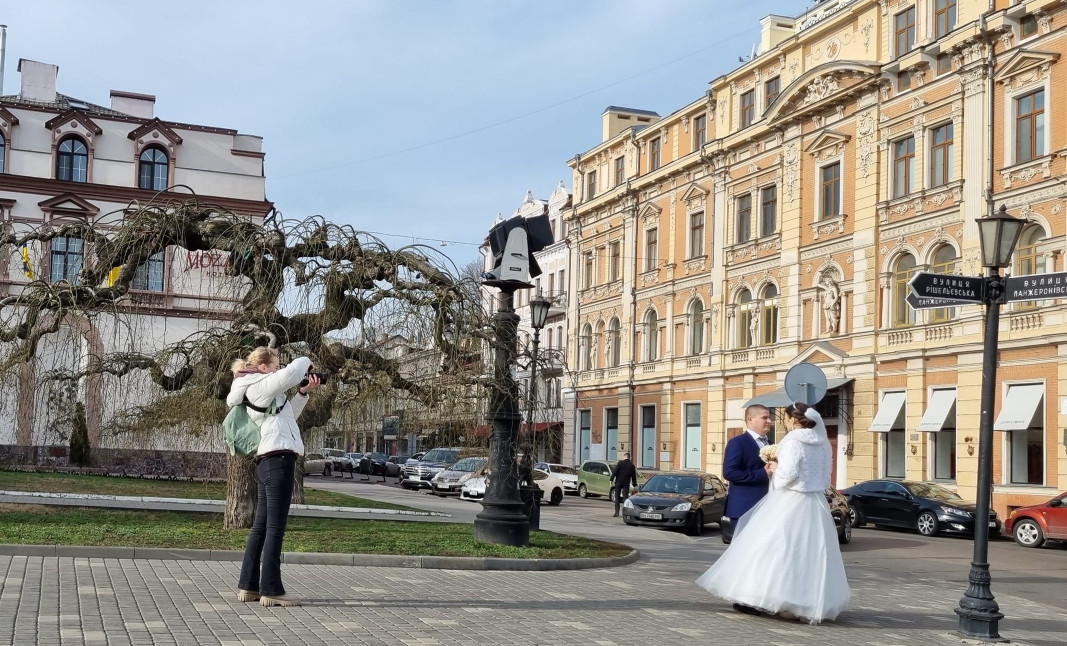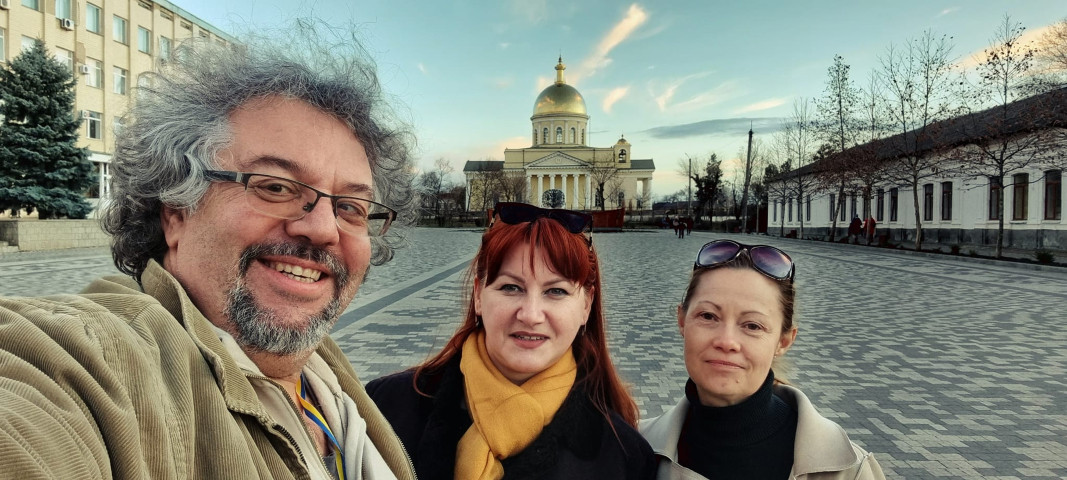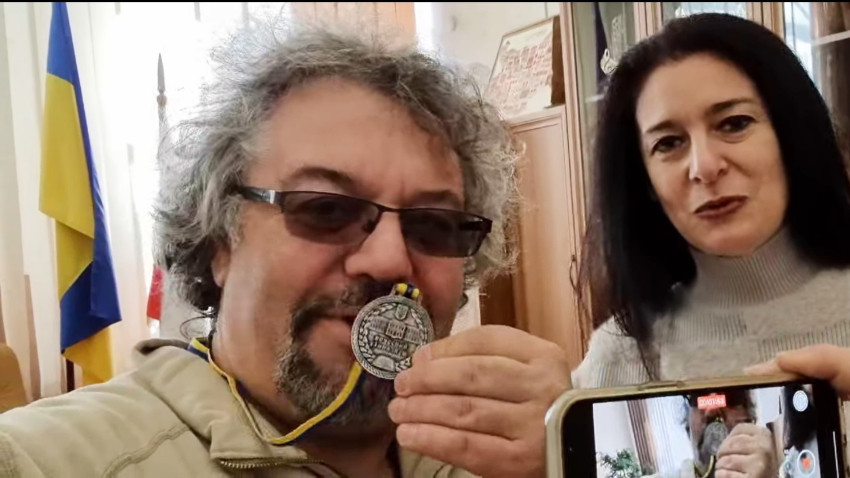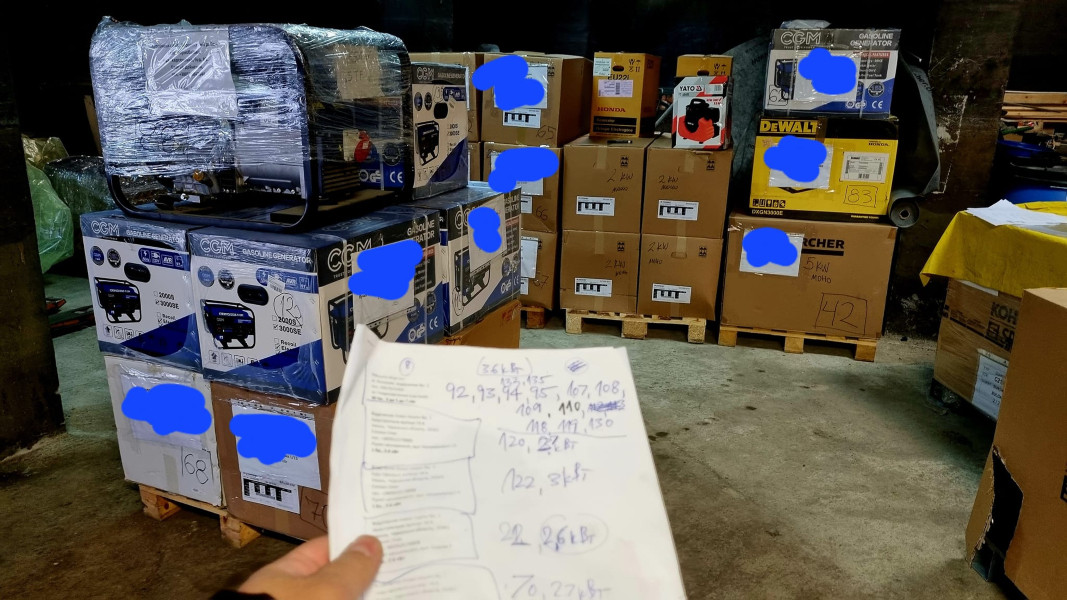It took a Bulgarian publisher, translator, former MP and champion of the Ukrainian cause and his like-minded associates exactly 18 hours from Plovdiv in Bulgaria to Odessa in Ukraine to deliver, and not for the first time, a ray of light and hope to the people who live the news we only watch on TV. His name is Manol Peykov and he is the driving force behind the citizens’ initiative “Generators for Ukraine”. During the past couple of months this initiative rallied 5,400 donors from Bulgaria, who have so far raised 1 million 200,000 Leva to buy 404 generators, most of which have already reached Ukraine.

In March last year, just days after Russia started its war on Ukraine, Manol Peykov undertook a personal mission – to help by collecting in-kind donations for a start, and then money for buying essential medicines, food, clothing, shoes, tourniquets for the soldiers at the frontline. “By November, around 270,000 Leva had been raised,” he says in an interview with BNR-Plovdiv. Then came the huge need for generators in the regions where the fighting was going on, and on 26 November, 2022 the start was given to “Generators for Ukraine”.

“After we bought the first few aggregates people started to realize it was a very important cause, and Bulgarians’ willingness to help skyrocketed,” Manol says. On Friday, 20 January, he himself left for Ukraine to transport the latest delivery of “hope”.
“We arrived late at night at the Ukrainian border, and the first thing we saw were the huge flames of the burning stubble fields such as I have never seen in Bulgaria,” the publisher from Plovdiv says. “It was kind of supernatural because I knew it was something that had nothing to do with the war but was somehow a symbol of the war as well. The customs officers were unusually friendly, almost like family. There was not a single car on the road, just trucks which had stopped to wait for dawn to continue on their way. We were following a police unit (11 PM) because we had a special mission, and we covered the distance of around 300 kms. to Odessa after dark. What we saw as we entered the city was complete darkness, like something out of those Hollywood antiutopias in which the entire human race has just vanished. There were a few traffic lights that were working but by the time we had reached the city centre everything had gone out. It was only in the morning that I saw that the hotel we were staying at was actually opposite the famed Odessa opera house. Fortunately, things are very different in daytime. The city is alive, vibrant, we even saw two weddings. People get married, kiss one another, life goes on, and it has to go on, it cannot and must not stop just because that is exactly what someone else, on the other side wants – to scare people, to make them feel that life is over. But it has to go on,” Manol Peykov says in an interview with Elena Krushkova from BNR-Plovdiv.

There has been cause for making some comparisons as well. Manol says that in recent years, and especially in recent months, we have been seeing Bulgarians come to the realization that if we don’t help ourselves, no one else will. That the state is not the “mother-hen” it was purported to be in totalitarian times. “There is one thing that can counterbalance abuse in politics, and it is civil society. Donating is the litmus paper that shows such a civil society is being born. That is the good news,” Manol Peykov said in an interview with Deutsche Welle. In Ukraine, a civil society does exist.
“The people I met were terrific, filled with optimism and a sense of purpose, but most of all I saw where the assistance we have been raising and turning into generators is going. The journey I made really made sense, it was the natural next step after everything we have been doing these past months,” Manol Peykov says.

The focus of the donations now being made is on public buildings – hospitals, kindergartens, schools, municipal and public centres, fire stations, nursing homes. More than 50 of the generators are earmarked for the people in Odessa and in Bolhrad, mostly Bessarabian Bulgarians, Manol Pekov says and adds that it was very important to him to pay a visit to the Bolhrad secondary school Georgi S. Rakovski – the oldest Bulgarian secondary school, founded in 1858 by special decree issued by Moldovan Prince Nikola Bogoridi, and with the help of Georgi Rakovski himself.
“We took a 40 kW generator there so they can have classes. We were given a really warm welcome and I was even given a very touching distinction – “honorary student”. I accepted it on behalf of all of the more than 5,400 people who have made donations.”

There are more than 500 children studying at the school now, and they come from Bolhrad and the environs. 70% of them are ethnic Bulgarians but all students study the Bulgarian language, with no exceptions. Headmistress Snezhana Skorich calls the school “a bridge between countries”, Manol Peykov wrote on Facebook, and added that he sees Bessarabian Bulgarians as a kind of “time capsule” that has preserved the best of the Bulgarian character – openheartedness, candour, togetherness, hard work, love of family and all things Bulgarian. As well as a deep respect of one’s roots – of an imagined, cherished Bulgaria which, in their hearts and minds is a true “heaven on Earth”. And not just in words.”
The “Generators for Ukraine” initiative continues, with an average of 2,261 Leva being donated every hour by Bulgarians who have around the idea of a brighter future, together.

Interviews by Radio Plovdiv and Horizont channel, BNR
Text by Vessela Krasteva
On this day 35 years ago, the authoritarian regime of communist dictator Todor Zhivkov collapsed. To mark the anniversary, the BGNES news agency carried out a survey of monuments to totalitarianism. The agency checked whether the monuments of the..
Residents and guests of the village of Kolena, Stara Zagora Municipality, gather for the Young Wine Festival. The event was celebrated for the first time in 2017, and a few years later the local teacher and winemaker Martin Slavov gave the..
The tallest Ferris wheel in Bulgaria will rise above Pleven , announced regional governor Nikolay Abrashev. It will be built in a multifunctional complex near the Kaylaka Park. "The project envisages the construction of a Ferris wheel with a..
The Varna Regional Library "Pencho Slaveykov" has acquired a humanoid robot. It was unveiled by the library's director, Radka Kalcheva, during the..

+359 2 9336 661
